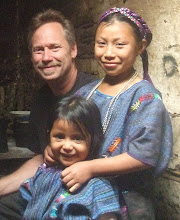Developing World Water Quality Issues and Technologies

Clean water problems in developing countries are pervasive (along with shelter, sanitation, food, and other core quality of life issues) - almost every EWB team deployed overseas can expect to be asked to help improve the water quality, and just finding clean water for themselves to drink while they are there is a concern as well. There is no single solution - every area has its own needs, on a variety of scales from just for one person, enough for a field team or family, sufficient for an emergency situation of any size, or for the permanent needs of a remote village. There are all kinds of different water quality problems, dozens of types of ways to use technology to address them, and a wide range of costs - all have to be taken into consideration. A fantastic first resource is the great general overview from the World Health Organization(WHO) on bad water in general
Managing Water in the Home: Accelerated Health Gains from Improved Water Supply - 83 page .pdf document (or 11 chapters/web pages).
 Another good resource is the summary of the 2004 conference "International Network to Promote Household Water Treatment and Safe Storage" with the complete document available from the Center for Disease Control(CDC) with very good references.
Another good resource is the summary of the 2004 conference "International Network to Promote Household Water Treatment and Safe Storage" with the complete document available from the Center for Disease Control(CDC) with very good references.The CDC also has a one pager Preventing Diarrheal Disease in Developing Countries:
Proven Household Water Treatment Options - with links to get details on a few favored technologies (for example, see the PuR product - flocculation plus disinfection):
Just as its name implies, Safe Water International covers all types of purification, and the link on Commercial Filters has 15 pages of details on
different commercial models. My latest experience with a filter in the field came in
 Guatemala last month, at the tiniest cafe in a tiny village - they had a beautifully simple double bucket system from HELPS. HELPS is a U.S. charity known primarily for its plancha stoves in Guatemala, and now I see that they are also involved in coffee, corn, and clean water projects and products. The water filter ceramic they use is a commercial one made by Fairey Ceramics, a U.K. company that makes parts for other water filters as well. As a materials scientist I am interested in modern solutions of this type - and there are many other first world suppliers of technical porous products that are used in developing counties, but I see that these can also be made by blending clay and fine organic products (like sawdust) which are then fired (to burn out the organics and form pores)in a simple kiln. Potters for Peace (but this site has
Guatemala last month, at the tiniest cafe in a tiny village - they had a beautifully simple double bucket system from HELPS. HELPS is a U.S. charity known primarily for its plancha stoves in Guatemala, and now I see that they are also involved in coffee, corn, and clean water projects and products. The water filter ceramic they use is a commercial one made by Fairey Ceramics, a U.K. company that makes parts for other water filters as well. As a materials scientist I am interested in modern solutions of this type - and there are many other first world suppliers of technical porous products that are used in developing counties, but I see that these can also be made by blending clay and fine organic products (like sawdust) which are then fired (to burn out the organics and form pores)in a simple kiln. Potters for Peace (but this site has 
better info on it) promotes this technology and trains local people. International Development Enterprises is an interesting group (are there no end to these other AT groups similar in purpose to EWB?)who believe that the rural poor are customers, producers, and entrepreneurs, not charity recipients - so they use market forces to provide technologies such as simple water pumps (hand, treadle, and more coming soon), drip irrigation, water storage, rainwater harvesting, and similar. The promote selling the Potters for Peace product, mention an arsenic filter technology.
 And here are more engineers offering help with silver impregnated locally made clay filters! Engineering for Developing Communities, offers help with other technologies as well.
And here are more engineers offering help with silver impregnated locally made clay filters! Engineering for Developing Communities, offers help with other technologies as well.Another sustainable technology is slow sand filters and they are among the simplest to construct (and are used by the Tanzania team of EWB-SFP)and here is a good 2006 article on their use: Appropriate Technology for the Treatment of Drinking Water in Roche, Tanzania.
And of course this review would not be complete unless we have an article about our famous Prof. Gadgil, on removing arsenic from ground water - Susan will visit Bangladesh next month.


2 Comments:
Slow sand filters are great at improving water quality, but they don't disinfect the water completely. Thanks for putting the CDC's Safe Water program link - it's a good reminder that we have to actively disinfect the water for it to be safe!
This kind of project is really a big help for each of us. Promoting a healthy and loving environment with the use of water projects is really a great thing.
Post a Comment
<< Home